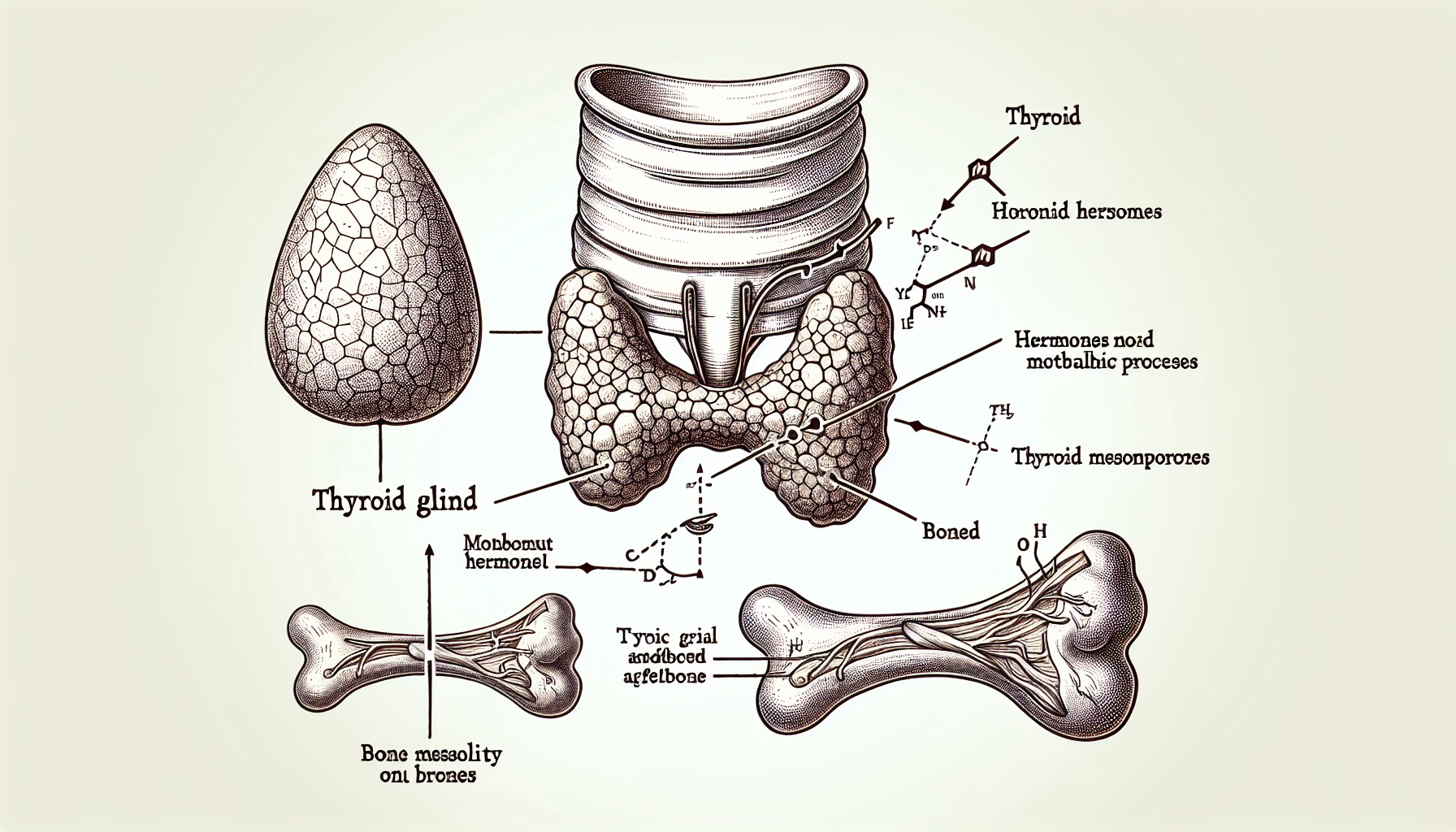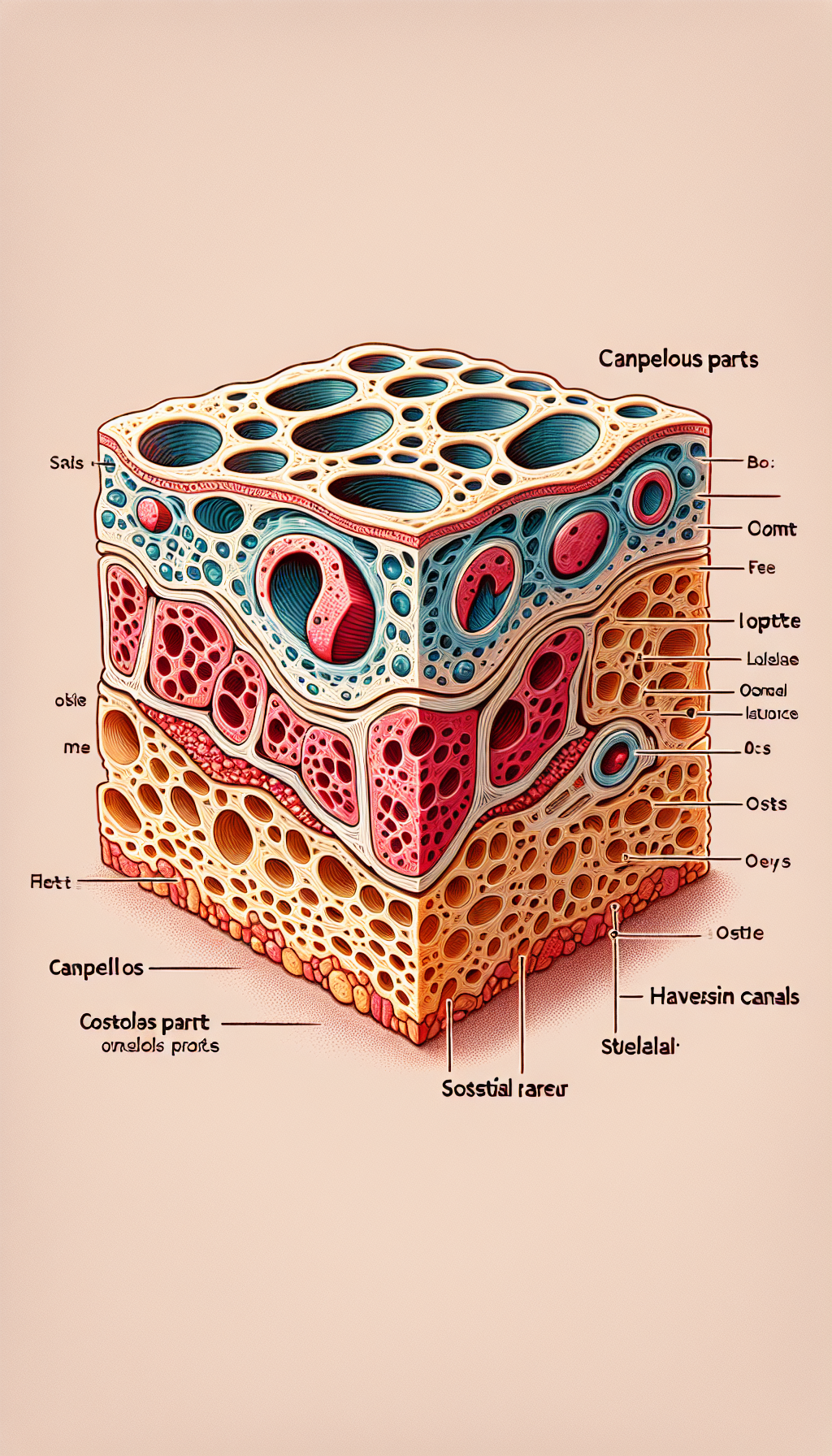The thyroid gland may be small, but its impact on bodily functions is immense, including the critical role it plays in bone health. Thyroid hormones are crucial regulators of bone remodeling—a process where old bone tissue is replaced by new. This delicate balance is essential for maintaining strong and healthy bones throughout life. However, when thyroid function is disrupted, it can lead to significant changes in bone density, increasing the risk of fractures and osteoporosis. In this comprehensive exploration, we delve into the complexity of thyroid function and its profound influence on bone health.
The Thyroid-Bone Density Connection
To understand how the thyroid affects bone density, it’s essential to first comprehend the role of thyroid hormones. Thyroxine (T4) and triiodothyronine (T3), the primary hormones produced by the thyroid gland, are pivotal in bone growth and the maintenance of bone architecture. They expedite bone turnover, which is the replacement of old bone with new bone tissue. However, an imbalance in these hormones can either accelerate or slow down this process, leading to bone density complications.
Hyperthyroidism, a condition characterized by an overactive thyroid and excessive hormone production, can speed up bone turnover to a point where the bone resorption outpaces the bone formation. This condition can result in a loss of bone density and potentially lead to osteoporosis, a disease where bones become fragile and more prone to breaks.
On the other end of the spectrum, hypothyroidism, where the thyroid is underactive and produces insufficient hormones, can reduce bone turnover. While this may sound beneficial, the decreased replacement of old bone can result in a buildup of older, more brittle bone tissue, which also poses a risk to bone health.
For an in-depth look at how bone health can be optimized, visit Bone Health on Avix Health for strategies and insights.
Evaluating the Risk Factors
Several risk factors contribute to thyroid-related bone density issues. These include age, sex, nutritional deficiencies, and lifestyle choices. For instance, postmenopausal women are at a higher risk for both thyroid disorders and osteoporosis, making the intersection of these conditions particularly concerning for this demographic.
Adequate nutrition is also a key player in bone health. Nutritional deficiencies, especially in calcium and vitamin D, can exacerbate the negative impact of thyroid disorders on bone density. For further reading on this topic, consider the insights provided in "Nutritional Deficiencies and Their Effects on Bone Health".
Thyroid Disorders and Treatment: Striking a Balance
The treatment for thyroid disorders often involves medication to normalize hormone levels. For hyperthyroidism, treatments may include antithyroid drugs, radioactive iodine, or surgery, all aimed at reducing thyroid hormone production. Conversely, hypothyroidism is commonly treated with thyroid hormone replacement therapy to raise hormone levels to a normal range.
While these treatments are effective in managing thyroid disorders, they must be carefully monitored to ensure they do not adversely affect bone density. Over-treating hypothyroidism, for example, can inadvertently lead to increased bone resorption, mimicking hyperthyroidism’s effects on bone health.
The Role of Exercise and Lifestyle Modifications
Exercise is a universally recommended approach to supporting bone health. Weight-bearing and muscle-strengthening exercises can help build and maintain bone density. For individuals with thyroid conditions, tailored exercise programs can be particularly beneficial. Learn more about the positive effects of exercise by exploring "The Role of Protein in Bone Strength and Repair".
Lifestyle modifications, such as quitting smoking and limiting alcohol consumption, are also crucial. Both smoking and excessive alcohol intake have been linked to reduced bone density and an increased risk of fractures.
Advanced Understanding Through Imaging Techniques
Recent advances in bone density imaging techniques have allowed for a more nuanced understanding of the relationship between thyroid function and bone health. These imaging technologies, such as dual-energy X-ray absorptiometry (DXA), provide precise measurements of bone density, enabling early detection of bone loss. For an exploration of these advances, the article "Advances in Bone Density Imaging Techniques" offers a wealth of information.
The Impact of Diet on Thyroid and Bone Health
Diet plays a significant role in both thyroid function and bone health. A balanced diet rich in calcium, vitamin D, and other bone-healthy nutrients is vital. Additionally, certain foods can influence thyroid health. For example, soy and cruciferous vegetables may impact thyroid function in sensitive individuals. On the other hand, a plant-based diet can offer benefits but must be carefully planned to ensure adequate nutrient intake. The effects of dietary choices are further examined in the article "The Effects of Plant-Based Diets on Bone Health".
The Importance of Regular Screening and Monitoring
Regular screening for thyroid function and bone density is crucial, especially for those at higher risk. Early detection of thyroid disorders and bone density changes can lead to more effective interventions and better outcomes. For individuals already diagnosed with a thyroid disorder, ongoing monitoring is vital to adjust treatments as needed and mitigate potential impacts on bone health.
Looking Beyond: The Broader Implications of Thyroid and Bone Health
Thyroid function and bone health are interrelated with overall well-being. Disruptions in thyroid function can also affect cardiovascular, brain, and digestive health. It’s important to consider these broader implications when managing thyroid disorders and to adopt a holistic approach to health.
For additional resources on the systemic effects of thyroid function, consider these niche and specific external resources:
- The American Thyroid Association provides comprehensive information on thyroid-related disorders and their systemic impacts.
- The National Osteoporosis Foundation offers resources on bone health, including the effects of medical conditions like thyroid disorders.
- The Endocrine Society presents research and guidelines on endocrine health, including in-depth material on thyroid hormones and bone metabolism.
In conclusion, the thyroid gland’s influence on bone density is an intricate aspect of health that requires careful consideration. By understanding this relationship, adopting a healthy lifestyle, and engaging in regular screening, individuals can better manage their bone health in the context of thyroid function.



